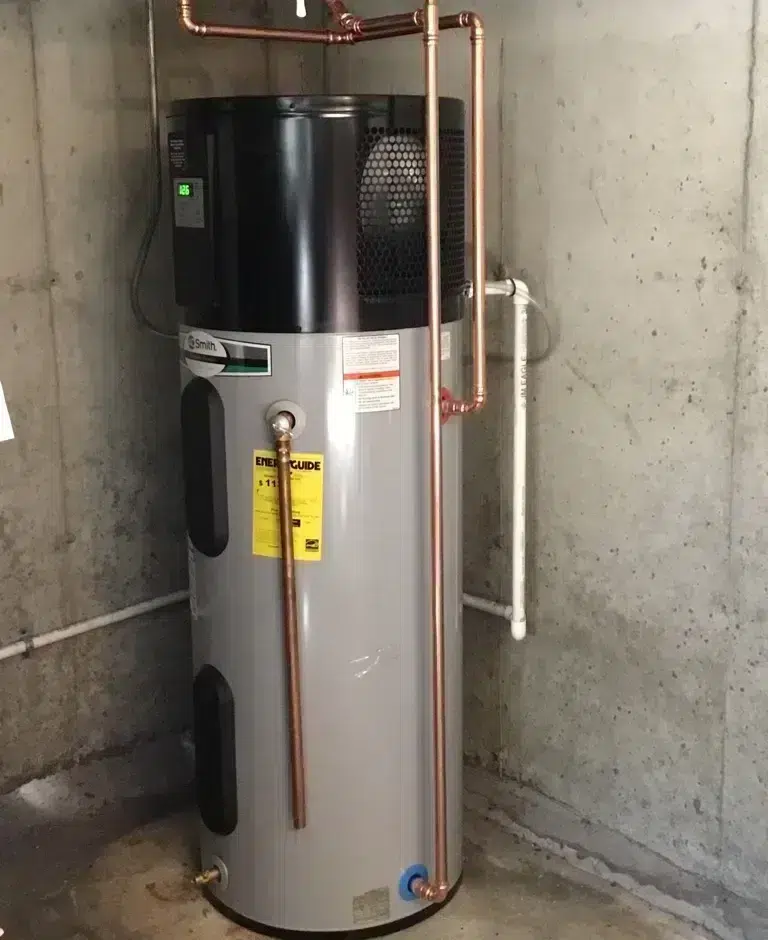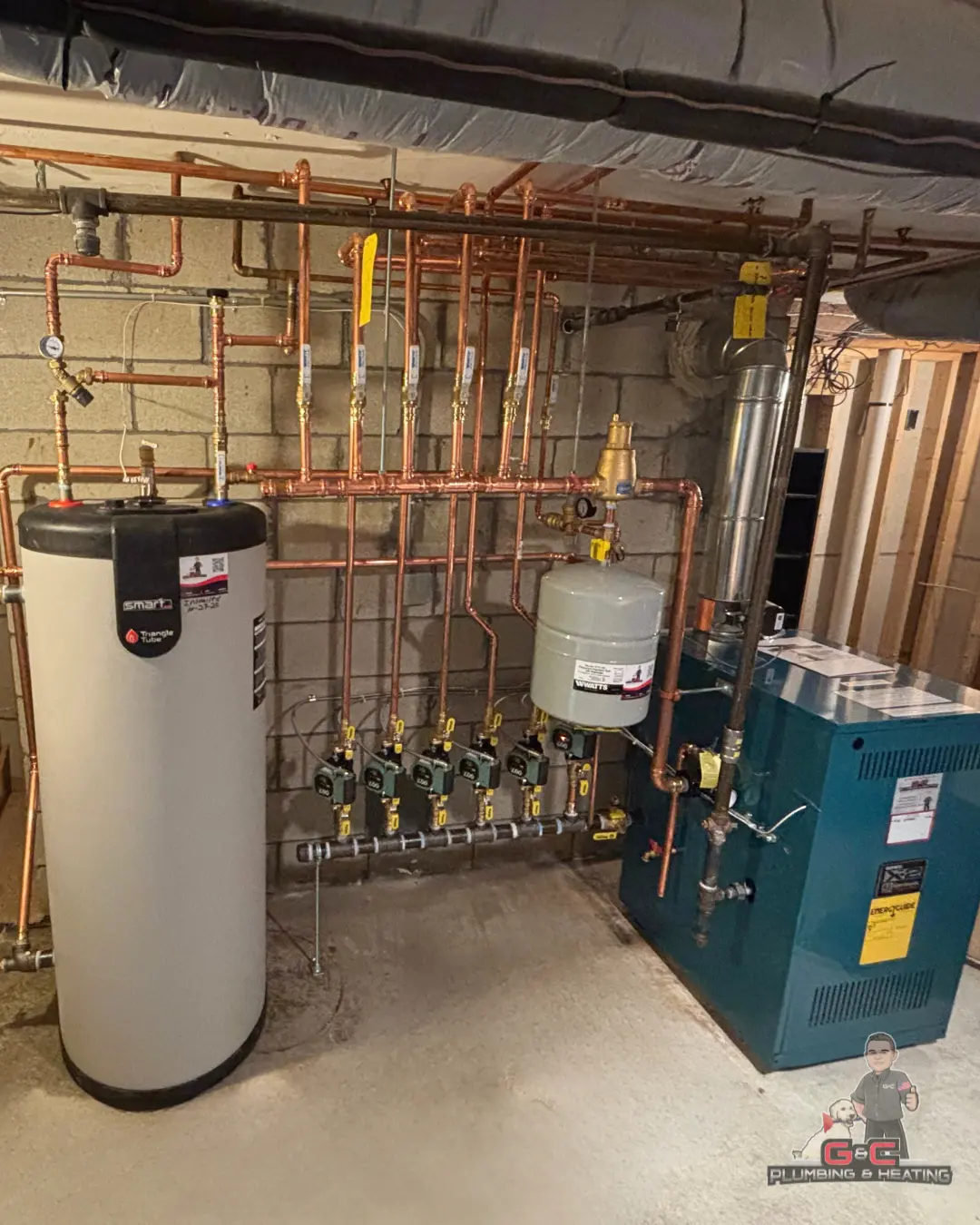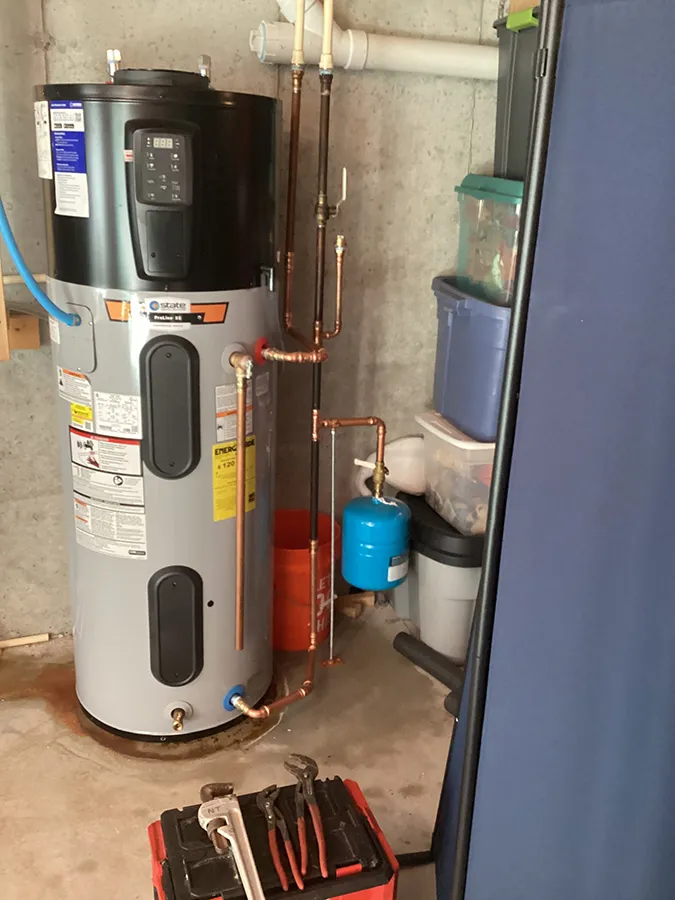Water Heater Installation in Franklin, MA
A reliable water heater is essential for your family’s comfort and daily routine. Whether your current unit has failed or you’re looking to upgrade to a more efficient model, G&C Plumbing & Heating provides expert water heater installation in Franklin, MA and beyond.
Our Franklin water heater technicians have installed hundreds of water heaters across the area. You’ll get dependable hot water and a straightforward experience from start to finish.
Plus, for a limited time, you’ll get $200 off a water heater installation—call today!
Book OnlineOur Franklin Water Heater Services
Click any service above to learn more or schedule an appointment!
Benefits of Installing a New Water Heater in Franklin
Upgrading to a new water heater is a smart investment that enhances your home’s comfort, efficiency, and savings. Here’s why:
- Energy Efficiency: Modern water heaters use significantly less energy, reducing monthly utility costs by up to 20%
- Reliable Hot Water: Enjoy consistent, dependable hot water without the temperature fluctuations common in aging systems
- Lower Maintenance: New units require fewer repairs and service calls, saving money and hassle
- Advanced Features: Benefit from self-cleaning functions, better insulation, and digital temperature controls
- Eco-Friendly Performance: Reduce your carbon footprint with high-efficiency models that consume less energy
- Enhanced Home Value: Updated essential systems make your property more attractive to potential buyers
A new water heater isn’t just about hot water—it’s about improving your daily comfort while reducing long-term costs. Contact our team to learn more about water heater installation in Franklin, MA today!
Water Heater Options for Franklin Homeowners
G&C Plumbing & Heating offers a variety of water heater solutions to meet any household’s needs:
- Conventional Tank Water Heaters: Traditional models that store and heat 30-80 gallons of water, available in gas, electric, and oil-fired options. These reliable systems balance upfront affordability with decent efficiency.
- Tankless Water Heaters: On-demand systems that heat water only when needed, eliminating standby energy losses. Though higher in initial cost, they offer unlimited hot water and energy savings over time.
- Hybrid Heat Pump Water Heaters: These energy-efficient systems extract heat from surrounding air to warm water, using up to 60% less electricity than standard electric models.
- Indirect Water Heaters: Working with your home’s boiler system, these units provide extremely efficient water heating by utilizing your existing heating system.
Our experts will help you navigate these options to find the perfect match for your home’s layout, hot water demands, and energy efficiency goals.
Choosing the Best Water Heater for Your Franklin Home
Selecting the right water heater involves several important considerations. G&C Plumbing & Heating guides you through this decision-making process by evaluating:
- Household Size: We analyze your family’s hot water needs based on number of occupants and typical usage patterns
- Space Requirements: We consider available installation space and ventilation requirements
- Fuel Type: We help determine whether gas, electric, or alternative fuel sources are most practical and economical
- Energy Efficiency: We explain efficiency ratings and long-term operating costs to maximize your savings
- Recovery Rate: We match your water heater’s reheating capability to your household’s demand patterns
- Budget Considerations: We provide options that balance upfront costs with long-term value
Our no-pressure approach ensures you get the perfect water heater for your specific situation without unnecessary upselling or complications.
Our Franklin Water Heater Installation Process
When you choose G&C Plumbing & Heating for water heater installation in Franklin, you benefit from our thorough, meticulous process:
- Initial Assessment: We evaluate your home’s layout, existing plumbing, and hot water needs to recommend appropriate solutions.
- Equipment Selection: We help you choose the right water heater type, size, and efficiency level for your specific requirements.
- Proper Sizing: We ensure your new system delivers sufficient hot water without wasteful overcapacity.
- Code-Compliant Installation: All work adheres to local building codes and manufacturer specifications for safety and performance.
- System Testing: We verify proper function, check for leaks, and confirm temperature settings before completing the installation.
- Cleanup and Disposal: We remove your old unit and leave your home as clean as we found it.
Why Choose G&C for Professional Water Heater Installation in Franklin
Choosing G&C Plumbing & Heating for your Franklin water heater installation offers significant advantages:
- Expert sizing ensures your new water heater meets your household’s specific demands
- Proper installation according to manufacturer specifications maximizes efficiency and lifespan
- Code-compliant installation prevents safety hazards and potential permitting issues
- Correct venting and connection setup prevents dangerous gases and leaks
- Professional removal and disposal of your old unit saves you time and hassle
- Warranty protection through professional installation maintains manufacturer coverage
Our skilled technicians handle the entire process from selection through installation, ensuring your new water heater performs optimally for years to come.
Book OnlineFranklin Water Heater Replacement Cost Factors
The cost of replacing a water heater can vary widely depending on several key factors. Understanding these elements can help homeowners plan, budget, and make confident decisions when it’s time for a new system.
- Type of water heater: Traditional tank systems typically cost less to replace than tankless, hybrid, or high-efficiency models.
- Fuel source: Gas, electric, propane, and heat pump units each come with different equipment and installation costs.
- Tank size or flow rate: Larger tanks and higher-capacity tankless units increase both equipment and installation pricing.
- Efficiency level: ENERGY STAR® and high-efficiency models cost more upfront but can significantly lower long-term utility bills.
- Installation complexity: Upgrades to venting, gas lines, electrical connections, or expansion tanks can increase the total cost.
- Location & accessibility: Water heaters in tight, hard-to-reach, or code-restricted areas may require additional labor.
- Local permitting & code requirements: Some installations require permits or code updates that factor into the final price.
- Disposal of the old system: Removing and properly disposing of an old tank adds a small but necessary cost to the project.
As a general guideline, most water heater replacements fall between $1,200 and $3,500, depending on the type and installation requirements. High-efficiency or tankless systems may be higher. At G&C, we’ll always provide a clear, itemized estimate before work begins so you know exactly what to expect.
Book OnlineReady for Better Hot Water?
Stop worrying about your old, inefficient water heater! G&C Plumbing & Heating makes upgrading simple, affordable, and hassle-free. Our Franklin water heater install experts will help you choose the perfect system and install it right the first time.
Call today for comfort you can count on!
Call (508) 966-8919Franklin Water Heater Installation FAQ
The right water heater size depends primarily on your household size and usage patterns. For conventional tanks, a family of 1-2 typically needs 30-40 gallons, 2-3 people require 40-50 gallons, and 3-5 people need 50-80 gallons. Larger families or homes with high hot water demand may require multiple units or a high-capacity system. G&C Plumbing & Heating performs detailed load calculations to ensure your new water heater precisely matches your specific needs.
Water heaters in Franklin typically last 8-12 years for standard tank models and 15-20 years for tankless systems. However, lifespan varies based on water quality, maintenance, and usage patterns. Hard water in Franklin can reduce lifespan by causing sediment buildup, while regular professional maintenance from G&C Plumbing & Heating can extend your unit’s service life by 2-3 years.
A standard water heater replacement in Franklin typically takes 2-4 hours when performed by G&C Plumbing & Heating professionals. This includes removing the old unit, preparing the area, installing the new system, and testing for proper function. More complex installations, such as converting from a tank to a tankless system or relocating the unit, may require 4-8 hours. We always provide time estimates before beginning work and complete the job efficiently to minimize disruption.
Traditional tank water heaters store and continuously heat 40-80 gallons of water, providing a ready supply but consuming energy even when not in use. Tankless models heat water on demand as it flows through the unit, offering endless hot water and up to 30% energy savings, but with higher upfront costs. G&C Plumbing & Heating can help Franklin homeowners weigh factors like installation requirements, efficiency, space constraints, and budget to determine the best option.
Yes, water heater installation in Franklin typically requires a plumbing permit to ensure the work meets local building codes and safety standards. G&C Plumbing & Heating handles all permitting requirements as part of our installation service, saving you the hassle of navigating municipal regulations. Our licensed professionals ensure all work is code-compliant and schedule any necessary inspections.
To optimize your new water heater’s efficiency, G&C Plumbing & Heating recommends setting the temperature to 120°F (providing adequate hot water while reducing energy consumption), installing an insulation blanket on older tank models, insulating hot water pipes to minimize heat loss, scheduling annual maintenance to remove sediment buildup, and using less hot water through low-flow fixtures and efficient appliances. We can provide guidance specific to your new system.



















